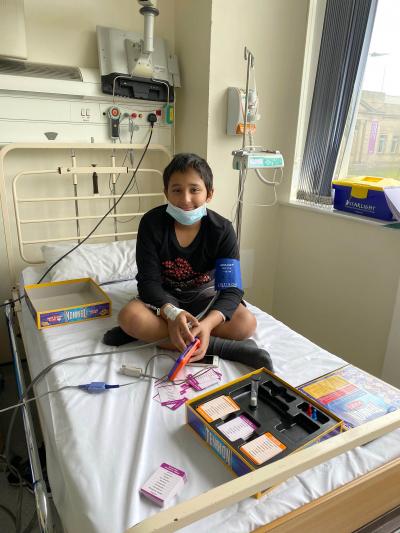Type 1 diabetes happens when the immune system attacks insulin-making beta cells meaning the pancreas can’t produce the insulin we all need to live.

In the 1970s, Diabetes UK scientists, led by Professor Gianfranco Bottazzo, found evidence that preventing this immune system attack could stop type 1 diabetes.
What are immunotherapies?
The discovery sparked work on the first treatments, known as immunotherapies, that aim to re-educate the immune system and slow or stop it destroying beta cells.
We’re working towards a future where immunotherapies will be used to protect the pancreas from an immune attack, so we can:
- Delay or prevent type 1 diabetes from developing in people in the early stages of the condition.
- Slow the progress of type 1 in newly diagnosed people, so they can make their own insulin for longer.
- And, one day, form part of a cure.
One discovery at a time
Our timeline charts how our research has been behind major milestones in uncovering the root causes of type 1 diabetes and advancing immunotherapies.
1974: We uncover type 1’s root cause
Our scientist Prof Gianfranco Bottazzo first discovers type 1 diabetes autoantibodies in people with the condition.
These are proteins, made by the immune system, that it uses to target beta cells. This provides key evidence that type 1 diabetes is an autoimmune condition.
It sparks the beginning of decades of boundary-pushing science to develop treatments to halt the immune attack.
1979: We spot a crucial early window to stop type 1
By studying relatives of people with type 1 diabetes, Prof Bottazzo and team find evidence that the immune attack happens gradually, starting long before someone is usually diagnosed with type 1.
For the first time, we know there is a window of opportunity to intervene before type 1 diabetes takes hold, to stop the immune attack and delay or prevent the condition.
1985: We fund a landmark 40-year study
We support the Bart’s-Oxford (BOX) Family Study, now the longest-running family study of type 1 diabetes.
Its findings rewrite our understanding of what happens in the immune system in the hidden, early stages of type 1 diabetes. And showed that having multiple autoantibodies means someone has a near-certain risk of progressing to a clinical diagnosis of type 1 diabetes in the future.
1990s: We pioneer testing for early type 1 warning signs
We back research that leads to the creation of tests to detect type 1 diabetes autoantibodies. This gives rise to clinical trials of immunotherapies to delay or prevent type 1 diabetes. Scientists can now identify the right people to take part.
2000s: We dive deeper into the immune system
We fund critical projects that help scientists dissect the immune root causes of type 1 diabetes, discovering new lines of the immune system's attack. This knowledge paves the way for the development of more precise and targeted immunotherapies.
2015: We make the UK a global immunotherapy hub
We invest over £3 million to set up the UK Type 1 Diabetes Research Consortium, in partnership with Breakthrough T1D. The consortium has:
- Set up 30 specialist research centres and expert teams across the UK to test immunotherapies at scale and speed.
- Increased how many people with type 1 diabetes can take part in clinical trials five-fold, so more trials can happen more quickly.
- Investigated how immunotherapies work and who they work best for.
Professor Colin Dayan, co-lead of the consortium said:
"We’ve changed the landscape in the UK into one where we can run many more trials and recruit to them quickly. We couldn’t do this before. I think this will open the floodgates to finding more drugs that work, and we’ll see things take off.”
2020s: We fine-tune immunotherapies
We fund research to make promising immunotherapies more effective – finding ways to predict who will benefit, combining therapies for greater effect, and finding better, quicker ways to measure if immunotherapies are working in trials.
2022: The Type 1 Diabetes Grand Challenge begins
The Type 1 Diabetes Grand Challenge launches to speed up progress towards a future where multiple immunotherapies are available for everyone at risk or living with type 1 diabetes.
2022: We fund the UK’s first type 1 screening programme for children
We launch the ELSA study, in partnership with Breakthrough T1D, to lay the foundation for a UK-wide screening programme. This is essential to find people in the early stages of type 1 diabetes who could benefit from immunotherapies.
Professor Parth Narendran, who leads the ELSA study said:
“For more than 100 years, people living with type 1 diabetes have relied on insulin to treat the condition, but tremendous progress with drugs that target the immune system is ushering in a new era for type 1 diabetes.
“Diabetes UK have been pivotal in shoring up the potential of these new treatments by supporting immunotherapy clinical trials and readying the UK through a type 1 screening programme. The foundations are in place and the possibility of unleashing the benefits to change the lives of people with or at risk of type 1 diabetes in the UK is in sight.”
2022: A milestone moment
The world’s first type 1 diabetes immunotherapy – teplizumab – is licensed in the UK. We work to make sure it can reach people who need it.
Today: We’re not stopping
We continue to fund the science that will one day prevent and cure type 1 diabetes altogether.
